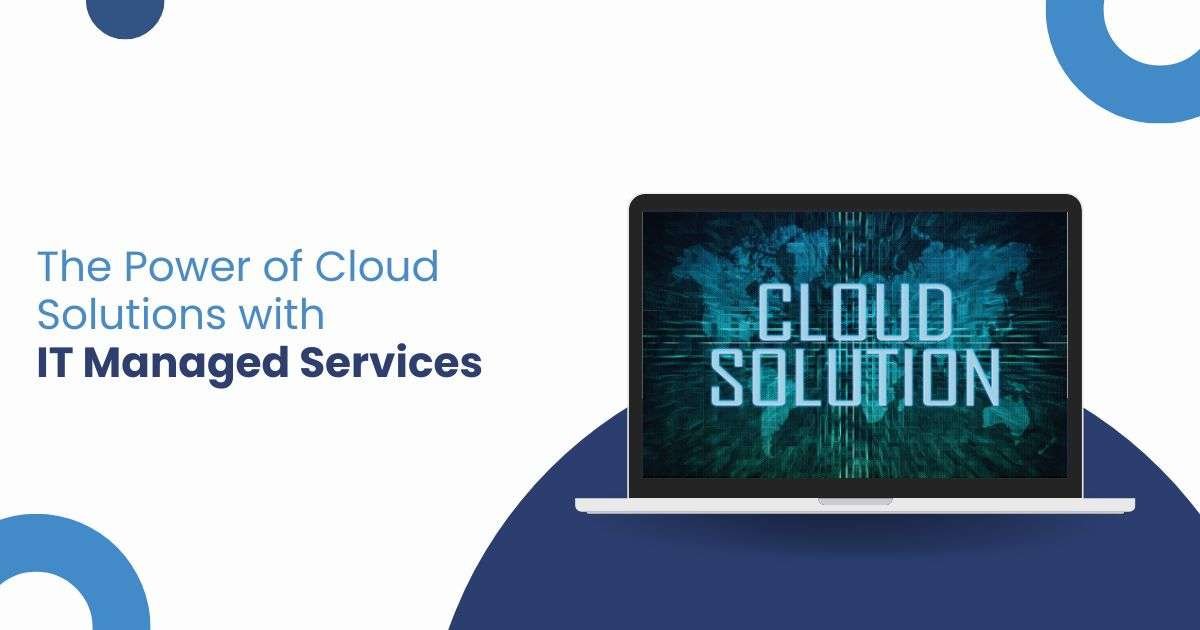Businesses are increasingly looking to Cloud Solutions Houston in today’s quickly changing digital landscape to spur innovation, boost efficiency, and obtain a competitive edge. By enabling more flexibility, scalability, and efficiency, utilizing cloud security solutions Houston can completely transform the way businesses run. Without the proper knowledge and assistance, managing the complexity of cloud security solutions Houston and administration may be quite difficult.
This is the situation in which Houston IT managed services are useful. Businesses may maximize the potential of cloud solutions while lowering risks and maximizing performance by collaborating with seasoned IT specialists. We’ll dive into the realm of cloud solutions provided by IT Managed Services Houston in this in-depth guide, covering everything from the principles of Houston cloud security solutions to cutting-edge implementation and optimization techniques.
Overview of Cloud-Based Solutions:
For companies of all kinds, cloud computing has changed the game by providing a flexible and affordable substitute for conventional on-premises infrastructure. Fundamentally, cloud computing in Houston refers to the on-demand provision of computing services—such as databases, networking, storage, and more—through the internet.
Comprehending Managed IT Services:
A variety of services are included in IT managed services, which are intended to relieve outside providers of the responsibility of managing IT infrastructure and systems daily. These services may comprise cybersecurity, data backup and recovery, network monitoring, and other things. Businesses can improve productivity, security, and dependability while concentrating on their primary goals by contracting out IT administration duties to seasoned experts.
Advantages of Cloud Computing:
Cloud solutions offer a myriad of benefits for businesses, including:
Scalability: The on-demand scalability of cloud resources enables enterprises to promptly adjust to evolving demands and specifications.
Cost-effectiveness: By using cloud solutions Houston, companies can forgo large upfront expenditures on hardware and infrastructure in favor of a pay-as-you-go strategy that is based on usage.
Flexibility: Employees may use any device with an internet connection, anywhere at any time, to access apps and data thanks to cloud technology.
Disaster Recovery: By minimizing downtime and reducing risk, cloud-based backups and redundancy procedures guarantee that crucial data is safeguarded against unanticipated calamities.

- Public Cloud: Third-party suppliers offer public cloud services, which are available to numerous customers via the internet. Google Cloud Platform (GCP), Microsoft Azure, and Amazon Web Services (AWS) are a few examples.
- Private Cloud: Dedicated to a single company, private cloud solutions can be hosted in-house or by an outside vendor. When it comes to control, security, and customization choices, private clouds surpass public cloud settings.
- Hybrid Cloud: By combining aspects of the public and private clouds, hybrid cloud solutions enable companies to take advantage of the public cloud’s scale while keeping critical data and apps on-site.
Management of cloud computing infrastructure:
Efficient administration of cloud infrastructure is essential for maximizing efficiency, guaranteeing safety, and managing expenses. Important facets of managing cloud infrastructure comprise:
Resource Provisioning: To effectively meet workload demands, resource provisioning involves allocating and managing cloud resources including virtual machines, storage, and network bandwidth.
Performance monitoring: keeping an eye on and evaluating metrics related to cloud performance to spot bottlenecks, maximize resource use, and preserve service levels.
Security Controls: To safeguard data and apps in the cloud, strong security measures like encryption, access restrictions, and intrusion detection systems should be put in place.
Cloud Solution Security Procedures:
For good reason, security is the top concern for companies moving to the cloud. Although cloud environments might provide new security threats and vulnerabilities, companies can reduce risks and protect their assets by taking the appropriate measures. Typical safety precautions for cloud systems in Houston consist of:
Data encryption shields information from unwanted access and interception by encrypting it while it’s in transit and at rest.Access Controls: To limit access to critical information and applications, multi-factor authentication (MFA) and role-based access controls (RBAC) should be implemented.
Regularly doing out security audits and making sure that industry rules and guidelines, such GDPR, HIPAA, and PCI DSS, are being followed.Cloud Service Agility and Flexibility: The inherent flexibility and scalability of cloud services is one of its main benefits. Without requiring expensive hardware upgrades or infrastructure adjustments, cloud solutions Houston may adjust to suit your needs, regardless of whether your firm sees unexpected growth or seasonal fluctuations in demand. Cloud services allow you to:
Easily Scale Resources: To handle increasing workloads or traffic surges, quickly provision extra resources like storage, processing power, and bandwidth.
Deploy New Services: Without requiring a lot of setup or configuration, quickly implement new features, services, or applications.Encourage Remote Workforce: Allow staff members to collaborate and work remotely from any location by giving them access to company resources and apps.
ROI and Cost-Effectiveness of Cloud Solutions:When considering traditional on-premises infrastructure, cloud solutions Houston presents a considerable opportunity for cost reductions and return on investment (ROI). Using cloud services, companies can:
Cut Capital Expenditure: By using recurring monthly subscription fees in place of large upfront investments in hardware, software, and infrastructure, you can reduce capital expenditure.Pay Just for the Uses You Make: Use metered billing models to avoid paying for capacity that isn’t being used by paying only for the resources and services you use.
Reduced Total Ownership Cost: Reduce the amount of money needed for continuous upkeep of the on-site infrastructure, including power, cooling, and physical security.Techniques for Migrating to Cloud Environments:To guarantee a seamless transition and reduce interruption to business operations, cloud migrations necessitate meticulous preparation, implementation, and continuous supervision. Important factors for cloud migration are as follows:
ing Interfaces) to enable interoperability and data exchange between disparate systems and platforms.














